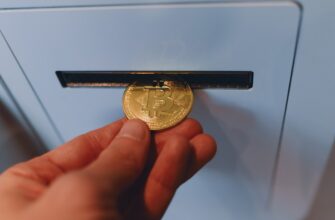In an era of digital surveillance and data breaches, learning how to protect funds anonymously has become crucial for financial privacy. Whether safeguarding savings from identity theft, avoiding targeted scams, or preserving personal freedom, anonymous fund protection empowers individuals to control their financial footprint. This comprehensive guide explores legal methods to secure your assets while maintaining anonymity, covering cryptocurrencies, payment tools, banking alternatives, and digital hygiene practices.
## Understanding Anonymous Fund Protection
Anonymous fund protection involves securing money without revealing personal identifiers to third parties. Unlike traditional banking, it prioritizes privacy through encryption, decentralized systems, and non-traceable transactions. Key reasons to adopt these methods include:
* Preventing identity theft and financial profiling
* Avoiding targeted cyberattacks and phishing scams
* Protecting assets from unjust seizure or censorship
* Maintaining personal freedom in unstable economic regions
* Reducing data brokerage and intrusive advertising
## Using Privacy-Focused Cryptocurrencies
Cryptocurrencies offer robust anonymity when used strategically. Follow these steps for maximum privacy:
1. **Choose privacy coins**: Opt for Monero (XMR), Zcash (ZEC), or Dash—they obscure transaction details via advanced cryptography.
2. **Utilize decentralized exchanges (DEXs)**: Platforms like Bisq or Haveno don’t require KYC verification.
3. **Employ mixing services**: Use CoinJoin (for Bitcoin) or Tornado Cash (for Ethereum) to anonymize transaction trails.
4. **Store in non-custodial wallets**: Hardware wallets (Ledger, Trezor) or open-source software wallets (Exodus) prevent third-party access.
## Leveraging Anonymous Payment Methods
Beyond crypto, these tools help anonymize transactions:
* **Prepaid cards**: Purchase with cash and use for online/offline payments without linking to identity
* **Cryptocurrency debit cards**: Services like BitPay convert crypto to fiat for everyday spending
* **Money orders/cashier’s checks**: Buy with cash for untraceable large payments
* **Cash**: Still the most anonymous option for in-person exchanges
* **Privacy-focused gift cards**: Platforms like Bitrefill allow crypto-to-gift-card conversions
## Establishing Anonymous Banking Alternatives
For larger asset protection, consider these banking solutions:
1. **Offshore accounts**: Jurisdictions like Switzerland or Belize offer strict privacy laws (ensure full legal compliance).
2. **Digital privacy banks**: Institutions like Monito or BlackCatCard provide IBANs without residency requirements.
3. **Blockchain-based neobanks**: Glimmer and similar platforms use decentralized finance (DeFi) protocols.
4. **Trusts/LLCs**: Create legal entities to hold assets anonymously (consult a lawyer).
## Enhancing Digital Hygiene for Financial Privacy
Your online behavior impacts fund anonymity. Implement these practices:
* **Use VPNs**: Encrypt internet traffic with providers like Mullvad or ProtonVPN
* **Adopt secure browsers**: Brave or Tor prevent tracking and IP leaks
* **Enable 2FA with hardware keys**: YubiKey adds physical security layer
* **Avoid public Wi-Fi**: Use mobile data or encrypted hotspots for transactions
* **Regularly audit permissions**: Revoke unused app access to financial accounts
## Navigating Legal Considerations
While pursuing anonymity, compliance is non-negotiable:
* **Tax obligations**: Anonymous doesn’t mean tax-exempt—report all income legally
* **AML regulations**: Avoid jurisdictions blacklisted for money laundering
* **Documentation**: Maintain encrypted records for legal verification if required
* **Professional advice**: Consult financial/legal experts to avoid unintended violations
## Frequently Asked Questions
**Q: Is anonymous fund protection legal?**
A: Yes, when used for privacy—not tax evasion or illegal activities. Methods must comply with local financial regulations.
**Q: Can cryptocurrencies be fully anonymous?**
A: Privacy coins like Monero offer near-total anonymity, but Bitcoin requires additional tools (e.g., mixers) to obscure trails.
**Q: What’s the biggest risk in anonymous banking?**
A: Scams targeting privacy seekers. Always verify platforms through independent reviews and avoid “too good to be true” schemes.
**Q: How do I anonymously protect large cash amounts?**
A: Combine methods: Convert cash to privacy coins, store in hardware wallets, and use offshore accounts with legal guidance.
**Q: Will anonymous transactions affect credit scores?**
A: No—credit systems track identified activities. Anonymous methods operate outside traditional credit reporting.
Protecting funds anonymously requires a layered approach: blend privacy technologies with disciplined digital habits while strictly adhering to legal frameworks. By implementing these strategies, you secure assets against unauthorized access without compromising ethics or security. Start with small steps—like switching to a privacy wallet—and gradually build your financial invisibility shield.








